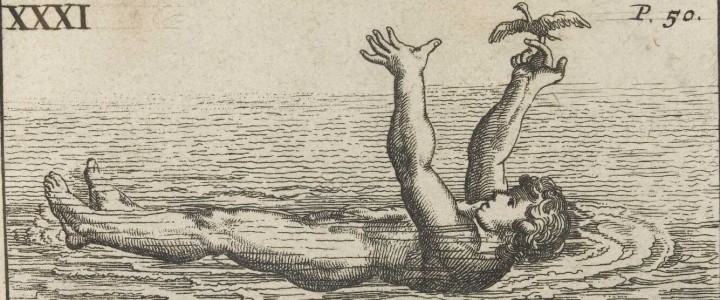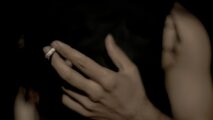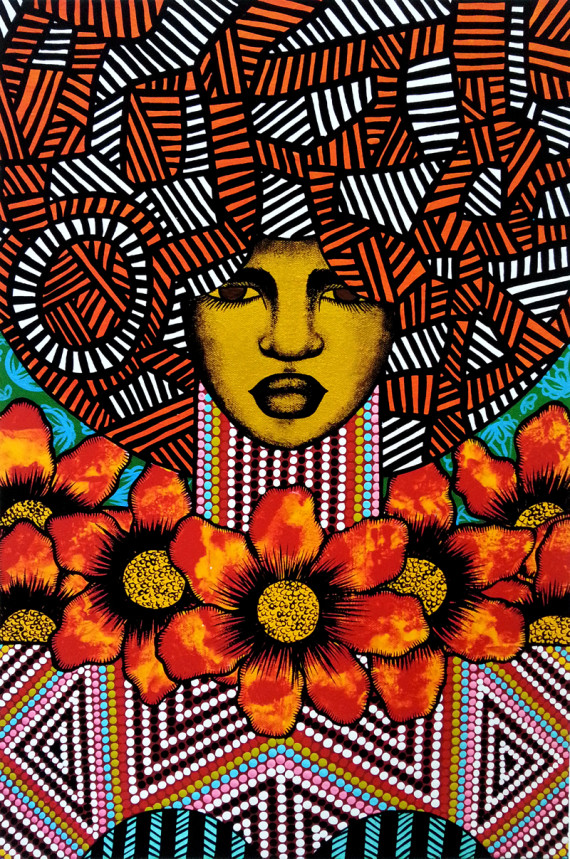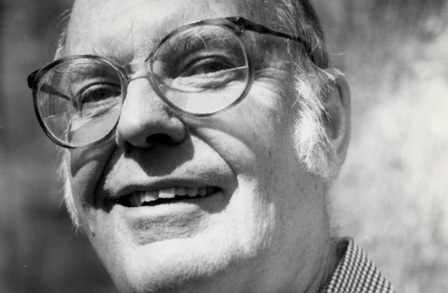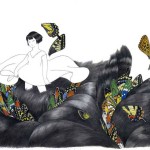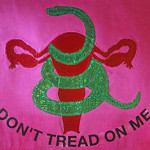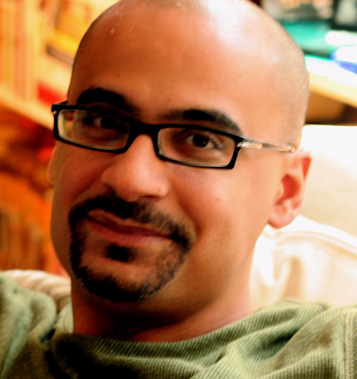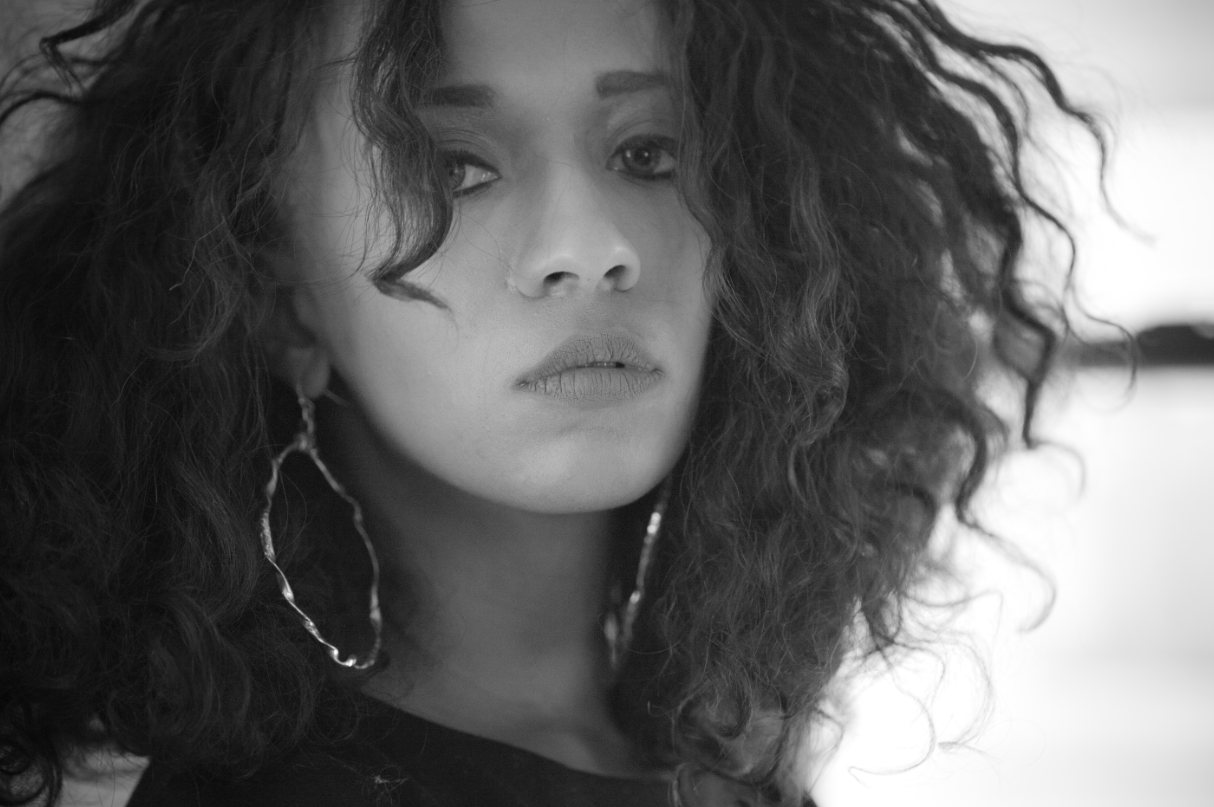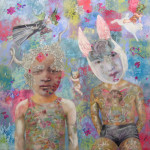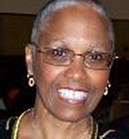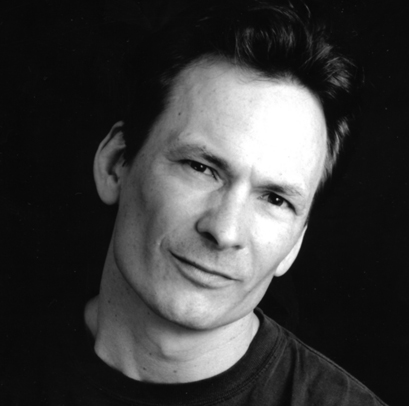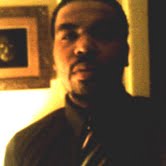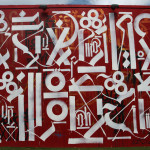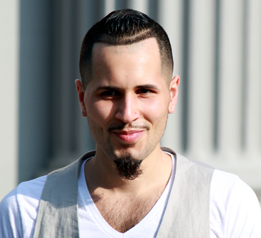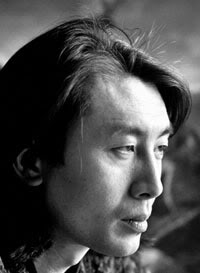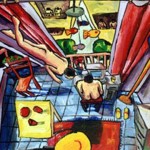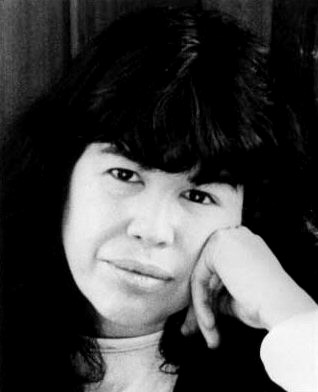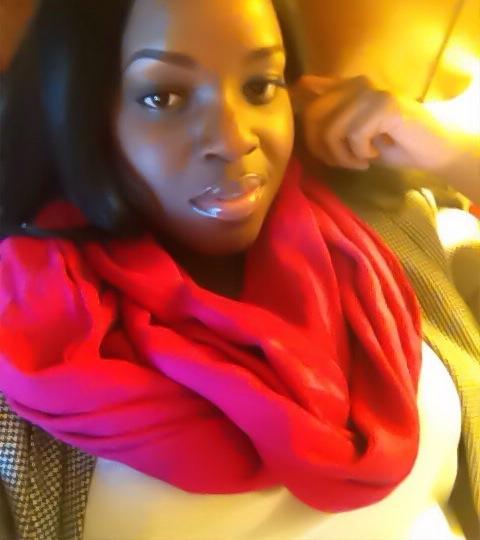When he arrived at our house, his left shoelace was untied. I remember it distinctly because other than that, his appearance was as neat as a choirboy’s. His hair was cut short, army style, and it was as black and as wet as a puppy’s nose. It was raining outside. Had been all day.
He wore a heavy, blue woolen pea coat – much too warm a coat for the advancing spring season, and all four of the coat’s tightly stitched, shiny coin-style buttons were done up, including the highest and smallest one (this one the size of a nickel but thin and sharp) at the very hollow of his neck. By the snugness of the coat I had the impression that it was the coat itself that held the boy together. His expression was the kind of serious that on a child reads like anger. Of course, it was fear that was shuttered beneath the surface. I too was scared, and angry, and just like this miniature adult, mournful, though our mourning was different. All mourning is different.
When the Fire Chief, a woman, called from Chicago to inform me that my daughter was dead my initial reaction was a sort of disbelief. Mind you, we hadn’t spoke to our daughter in years. But she had called the other night. Left a message saying, ironically enough, life was too short and that she wanted to come see us. Wanted us to meet her son, our grandson. I didn’t call back. I know my husband wanted to, but I wasn’t ready, you see. I needed to know what I would say. I needed just a little more time. It’s strange, that moment. That moment when you learn someone you love is gone forever. I could see her, but she was like a silvery powder, the seeds of a dandelion blown upon by soft lips and floating away. I couldn’t keep hold of my glasses. I remember that. They were in my hands, folded, plunk on my lap. But they just kept slipping off. I couldn’t keep hold of them. My daughter was a firefighter. I never approved. “Add it to the list,” she would say. The Chief then explained that my daughter died putting out a fire in an abandoned warehouse. An abandoned warehouse.
My husband said I looked like I’d been robbed. That I looked both indignant and hollow. But I would say that it was he who turned grey. Every bit of him. We stared at each other but I think really we only saw ourselves: sort of like staring out the window on a rainy day and seeing nothing but your own reflection in the mottled glass and the water droplets sliding down the pane. Isn’t that funny, how that happens? How looking out can suddenly become looking in? I am the mother of only one child. And while having multiple children would not have altered my sorrow I am sure, I felt stripped of an identity. A wanderer. A flower without the earth to hold it still. I never did care much for orchids. So, when the little boy in the too tight overcoat arrived at our doorstep, sandwiched between one male and one female social worker, both wearing dripping wet, shapeless beige trench coats and a mix between professional and human expressions, all I could think was how wholly unprepared I was to take this on. It was too soon. I was too damn old. And he was so young.
I took his hand. Pried it free really. He pulled it back. Re-owned it. We had never met. He didn’t look like me. Not like my husband or my daughter. He looked like the pictures, only in those he had always been smiling.
“Okay.” It was all I said. It was all I could say.
“Margaret?” I turned to face my husband. He gestured with his eyes toward the plate of cookies I’d made for the occasion.
“I don’t think he wants a cookie, John.” I practically scolded John with my words. I do that often when I think I read a situation better than someone else. My husband had been taking it on the chin for years. God bless him for it, though sometimes it made me think he was a real coward. If someone had spoken to me the way I spoke to him half the time, I’d have told them to take a flying leap. Or go stick it where the sun don’t shine. I know. I can be awful.
“Mr. and Mrs. Winters? Could we speak somewhere for just a minute?” It was the female social worker assigned to the case. Very tall. Very broad. She left the boy’s side and approached, just two steps, as if waiting for permission to come closer. John gave me that, “You go ahead. I’ll stay here,” look. That look that said, “you handle the details.” He knows how much I love the details.
“Of course,” I said. I took her into the bedroom, John’s and mine. An odd choice I thought, I knew better, well…we stood there anyway amidst an unmade bed and a pile of wash to put away, and this is what she said to me: The will named you. He has no one else. It’s you or the state. Will you take him on? My answer was, “yes.”
My daughter’s name was Hope. It’s a beautiful name, isn’t it? She was a beautiful girl. Smart, and funny. We always thought she’d become a teacher or a veterinarian. But she fell in love with firefighting. So strange. And she did not marry. She had Jeremy on her own through artificial insemination. That was the year she told us she was gay. We didn’t speak after that. It’s not how I was raised. And it’s not how we raised her. It was simply not part of the vocabulary. Who are you? I remember thinking. Yes, his name is Jeremy. It’s not a family name. Not sure what inspired her.
“You’ll just need to sign this.” John was seated at the kitchen table signing a form and the social worker man was hovering over him (the social worker woman was on her cell phone out in the living room) and I was standing in the kitchen completely unsure of what to do. I was just watching the boy, watching Jeremy, and I felt I should have been entertaining him or consoling him or something. Consolation, however, is not my forte and I was in no mood to entertain. He seemed content, anyway, picking apart the cookie I’d put on a plate for him, seated there next to John, watching (unbeknownst to him) his whole life change with the swish of a pen. I guess I was wondering who his father was. But did it really matter? He’d never know him and neither would we. Closed files. Sealed, forever and ever. Orchids.
My daughter?
My daughter came out to me over the phone. That’s what they say, you know. “Coming out.” Out of the closet. Don’t know how she got in there in the first place. But she was my daughter. Our conversation was very brief.
“Mom. I have to tell you something,” she said. I knew. I just knew. A mother knows.
“Yes,” I said.
“I’m gay.” Of course knowing and knowing are two very different things.
On the other end of the phone was my little girl in the dress with the cherries pattern on it, the one I’d purchased from Sears (back when Sears was good), and she was running across the lawn in her black patent leathers, hair in bows and curls, arms stretched out to me. My Hope. My precious, little Hope. I created you, I remember thinking. I created you, and now I don’t recognize you at all. How dare you? How dare you do this to me?
“Mom? You there?” she said. Odd last words, aren’t they?
You must understand, my sense of betrayal was overwhelming.
John has struggled with it less, but of course, he’s a man. If we’d had a son and this had happened…well. Then he’d know.
I poured coffee into two to-go cups and sent the social workers on their way. It was windy out and sort of a warm cold. An ugly night. Still raining. Their headlights ignited and they were gone. John sat with Jeremy at the table not saying a thing. But I could tell by their silence, the comfort in it, by the way their backs both hunched, (they were angled toward one another you see), that they would form a bond I would have no part of. I poured myself a cup of coffee, pulled a sweater around my shoulders and slid open the door to the porch, stood under the awning getting wind blown and watched the sky unload. Tomorrow would be a new day. I’m always better in the morning.
That was a year ago today. A lot has happened since then. A lot and nothing at all. This little boy is growing up in a very slow-paced world having grandparents as parents. But I would say we have grown to love him, and he us. He is quiet and kind, and terribly afraid of the dark. This afternoon, I’m going to the store to get him a nightlight. A turtle or a unicorn or something on it. Better than the bathroom light. He helped me plant pansies yesterday. Said his mommy loved flowers. Always had them in the house. I told him, there, with our hands in the earth, that she was a flower. That she was in there, inside each and every one. I told him his mommy was beautiful and a very good daughter. She was. As I write this, I know.
Lisa’s most powerful influence as a writer remains her English-major mother who never let her children end a sentence in a preposition and who continues to encourage the journey. In 2014, Lisa received Hofstra University’s 2014 Axinn-DeMille Award for her in-progress second novel, TWO MOTHERS. Her short stories have appeared in Avalon Literary Review, HelloHorror, Font and now, with great pride, Narrative Northeast. Lisa holds an MFA in Creative Writing from Hofstra and a BA in Semiotics from Brown. She lives blissfully in the wilds of New Jersey with her adored wife, children, dogs and the occasional fox. Please visit her website at: lisanapolitan.com
Related Posts
« Easy: In Memory of Ortho-Novum 7/7/7 — Amanda Hiber THE DEAD HOURS OF THE NIGHT – John Barrale »
